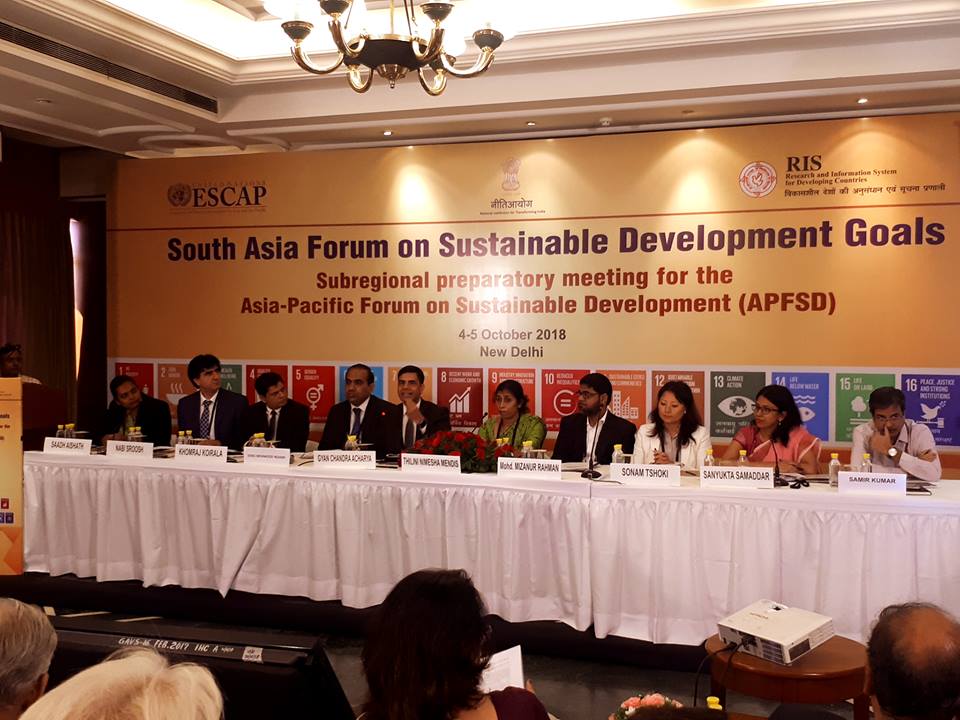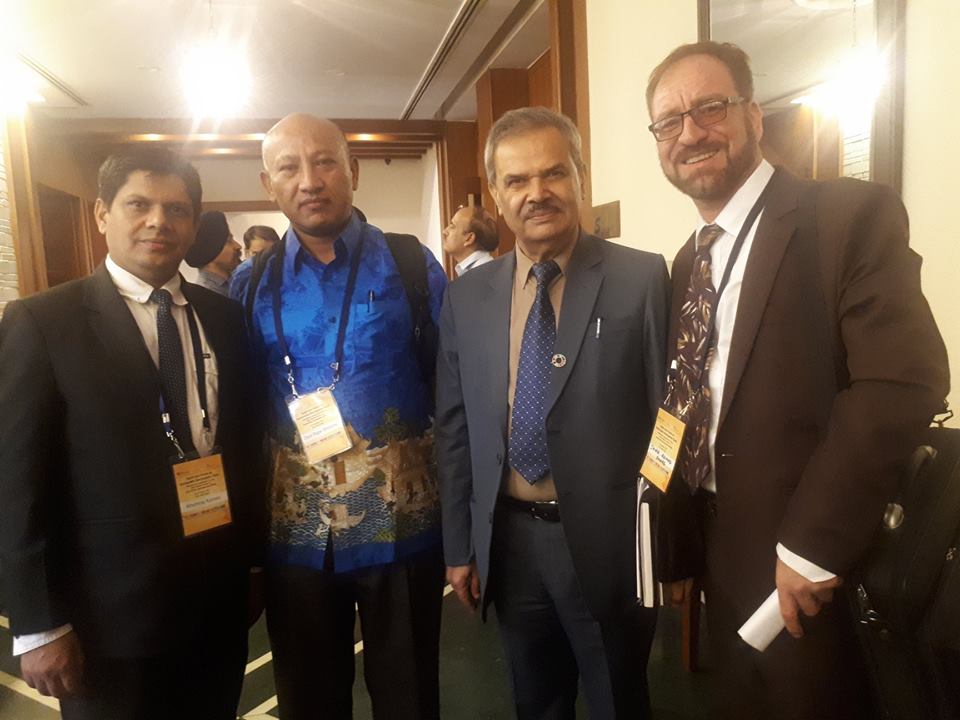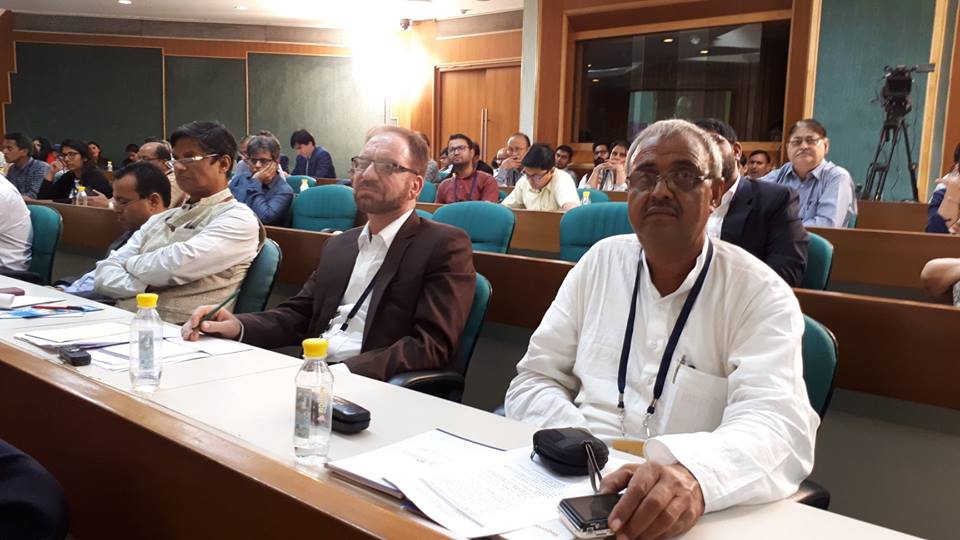South Asia Forum on SDGs, Sub-regional Preparatory Conference under Asia-Pacific Forum on Sustainable Development (APFSD) 4-5 Oct 2018

South Asia Forum on SDGs 2 days Sub-regional Preparatory Conference under Asia-Pacific Forum on Sustainable Development (APFSD) 4-5 Oct 2018 in India Habitat Center , New Delhi.
Delegates from Afghanistan, Bangladesh, Bhutan, India, Iran, Maldives, Pakistan & Sri Lanka were present, and it was hosted by (UNESCAP).
The focus area was the Nationalization and Institutionalization of SDGs according to the context of each countries.
Statement of the civil societies of South Asia on the education sector:
Distinguished delegates, ladies and gentlemen on behalf of the civil societies of South Asia, We would like to share our thoughts on ensuring inclusive and equitable quality education and promote lifelong learning opportunities for all as stated in SDG 4. It is our hope that this initiative, a constructive and positive space for active participation of civil societies, will expand and strengthen access, equity and quality of education.
At the outset we would like to congratulate the governments for taking positive steps towards creating conducive policy backup and developing plan of action to implement SDG4. Some countries have already linked the goals to the ongoing schemes and have made financial allocations accordingly.
However, there are still huge populations of vulnerable groups who are denied their right to quality education and lifelong learning opportunities. Children and youth in remote areas, people with disability, illiterate women, indigenous communities, caste class and religion based discriminated communities, ethnic minorities, dalits, migrated children, single-parent families, transgender and riot victims have been continually marginalized from education and learning opportunities. This list is not exhaustive as vulnerable groups differ across different country contexts.
South Asia is home to 627 million children under 18 years of age, which is approximately 36 percent of the total population. It has the largest number of illiterates in the world, around 71 %, of whom 72% are women.
Access to quality and holistic Early Childhood Care and Development is a major problem in most the countries in the region, only half of the children attend early learning program. Pre-primary is not compulsory in most of the South Asian country and not part of the basic education cycle. Enactment of national policies to make ECCD compulsory and part of the basic education is need of the hour which will also ensure that all children have access to holistic, publicly funded ECCD programs.
As per UNESCO Institute for Statistics globally there are 263 million out-of-school children, adolescents and youth worldwide in 2016, out of which 95.8 million lives in Southern Asia, a number second only to Sub-Saharan Africa. Free and compulsory education till secondary level is crucial along with a database which will specify the causes of staying away from school. This will help in addressing the issue and therefore develop programs to bring back the children and also ensure that all children have access to age appropriate education.
Quality of education depends on various factors. Along with quality learning materials, learner-cantered teaching/learning strategies, well trained teachers are essential for delivering quality education. Investment by national Governments are critical in professionalization of the teaching profession, ensuring that teachers are well-paid with benefits and that they have pre-service and continuing free in-service trainings. Teachers should also focus on teaching and not be distracted be non-teaching tasks. Teacher vacancies and privatization of teacher training institutes are also areas of concerns and needs attention. Teachers should be made to focus on quality teaching.
With the proliferation in privatized higher education institutions, along with rapidly growing enrolment (GER), there is an increasing concern on quality of education. Specifically, in regard to preparing youth for rapidly changing job market. The concern becomes even more for young girls who continue to drop out of secondary education. The TVET institutes restrict skill training to only technical aspect incorporating no life skills or rights based training. Further, these are gendered courses providing only limited options to women trainees. Vocational and TVET training needs to break gendered notions of work and offer rights based training and life skills along with technical skills.
There is need for reformation of the education system and put in place multiple pathways to learning that allow youth and adults access to appropriate learning programs based on their needs and availability. Adequate investment in non-formal and informal education as complementary systems linked to the formal education system can result in long term positive impact. Transformation of the education system in a lifelong learning framework can provide relevant learning opportunities for marginalized sectors.
Many governments are yet to invest 15-20% of their GDP to education. Quality in education is also underfunded. With the decrease in quality in public schools, low fee private schools have proliferated. Even poor families send their children to these schools in the hope of better future for the children. On the other hand, there is also a proliferation of commercial schools that make profit out of education.
Violence against children is on high rise, in entire region. The safety and security of girls and marginalized children is a grave concern. This needs to be sorted out with accessible and easy redressal mechanism. In some countries of the region the conflicts are great challenge for child friendly schooling system. These countries need more specific interventions to improve education.
Privatization and commercialization of education is a threat to the right to education and social justice. It specifically excludes girls and marginalized children Efforts by national Governments to strengthen the public education systems, rather than allowing or supporting private providers is critical for the success of the education goal - a strong regulatory mechanism is necessary to ensure that education as a public and common good.
Gender stereotypes persist in education. Early marriages prevent girls and young women from pursuing education. Boys in agriculture drop out from education because they are expected to contribute to income. The curricula fail to provide gender-just framework and teaching in education.
Reliable and transparent data sources, particularly disaggregated data for out of school children, children with disabilities, marginalized youth, girls and children in difficult situation is significant in successful planning, implementation and monitoring of programs.
Space for CSOs to engage in government policy and program development has not broadened and civil society participation has not been institutionalized except in a few countries. Working towards transparency and accountability in education remains a challenge for CSOs. There is a need to institutionalize civil society participation in all aspects of education as articulated in the FFA through enactment of public policy for CSO participation at the local and national levels.
Finally, the country policies are expected to be honoring the international covenants for empowering, protecting and educating children, adolescents, youth and adults.


